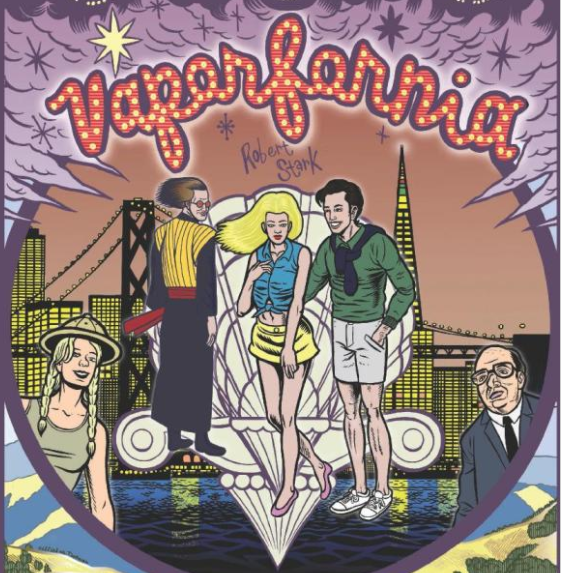“Another Kind of Fed”: Zubots and the Precedent of Russian Police Trade Unionism
 |
Sergei Zubatov (1864-1917)
|
Last week I reviewed Brandon Adamson’s new book The Rats of Nationalism, which discusses the online phenomenon of artificially seeded and deliberately ineffectual splinter tendencies within the dissident sphere, positing the existence of “another kind of fed” whose objective is the fostering of an innocuously controlled opposition. “Rather than attempt to entice someone into committing an illegal act or disrupt a movement’s image by using extreme, off-putting rhetoric, this type of fed inserts himself into the equation at earlier stages in the radicalization process for the purpose of pacification.”1 Adamson does not suggest terminology for such agents; but one possibility presents itself in the precedent of the synthetic Russian trade unionism of tsarist police administrator Sergei Zubatov.
As a young man, Zubatov had been a radical. Recruited as a police informant, he eventually joined the Okhrana and rose within it to become an important domestic security official. Zubatov is specifically remembered for his approach to workers’ agitation for collective bargaining rights. Victoria E. Bonnell, in her book Roots of Rebellion: Workers’ Politics and Organizations in St. Petersburg and Moscow, 1900-1914, summarizes:
Whereas formerly the government
had relied primarily, although not exclusively, on repression and punitive
measures to contain labor unrest, Zubatov counseled a policy of active
government involvement in industrial relations. A close observer of Western
European labor movements […] Zubatov was confident that workers would proceed
along a reformist rather than a revolutionary path if the government enforced
existing labor legislation and permitted the factory masses to organize collectively,
under close police supervision, for purposes of material improvement. Under
these conditions, he asserted, workers would reject the appeals of radical
intellectuals, remain loyal to the autocratic system, and content themselves
with incremental gains achieved by peaceful and lawful means.
Zubatov was not alone in
the belief that some form of Western European trade unionism should be
permitted to develop legally on Russian soil, albeit with special provisions to
ensure government control. […]
In the form originally
conceived by Zubatov, the experiment functioned in Moscow for only about one
year. Created under the legal rubric of mutual aid associations, the societies
soon became involved in labor-management conflicts. By mid-1902 opposition from
industrialists and some government ministries, notably the Ministry of Finance,
forced Zubatov to modify the activities of the societies to emphasize religious
indoctrination instead of industrial relations. With Zubatov’s transfer to
another post in St. Petersburg in August 1902, the experiment suffered a severe
setback, although some of the societies remained active well into 1905.2
More deeply committed radicals reacted scornfully toward this “police socialism” or what they dismissively dubbed “Zubatovshchina”. “With its transparent police involvement, the Zubatov movement became an object of relentless vilification by Social Democrats and other radical groups,” Bonnell continues:
Most early liberal supporters
of the experiment had deserted it by mid-1902 amid disclosures of police provocation
and manipulation of the societies’ affairs. The label “Zubatovets” became a
term of opprobrium in many circles, a virtual synonym for “provocateur”.
Disheartened and disillusioned by their experience, some workers became
suspicious of trade union type organizations, which they associated with the
Zubatov experiment. But the influence of the Zubatovshchina was not always
negative, particularly among predominantly unskilled groups such as tobacco
workers and candymakers. By demonstrating the benefits of organized struggle,
the Zubatov movement equipped these workers to recognize and respond to the
opportunity for independent trade unionism when it arose during the 1905
revolution.
Bonnell quotes a St. Petersburg metalworkers’ organizer, Fedor Bulkin, who asserted, “The Zubatovschchina played … a great role in the workers’ movement, facilitating the unification of workers, the development of class consciousness among them, giving [them] the possibility for organized struggle with employers and demonstrating to workers their strength”3 – much as, for instance, coordinated Groyper targeting of figures like Charlie Kirk or Sebastian Gorka might demonstrate the potential effectiveness of a mass action in discrediting and humiliating political enemies. Whether the parallel between the Zubatovshchina and the fad-happy online nationalist actors I propose to term “Zubots” extends to this redeeming feature remains to be seen. Adamson, after acknowledging that a “novel solution might be to just aggressively play along”, comes down against this option in his chapter “Post-Rat Nationalism”. “Trust is such a rare and indispensable commodity within these circles, that I’m not sure it’s worth sacrificing for anything,” he writes. “The other issue with attempting to repurpose other people’s ops is that you’ll never really be sure if you’re using them or they’re using you.”4
Rainer Chlodwig von K.
Rainer is the author of, most recently, Drugs, Jungles, and Jingoism.
Endnotes
1. Adamson, Brandon. The Rats of Nationalism. Phoenix, AZ: Briny Books, 2019, p. 23.
2. Bonnell, Victoria E. Roots of Rebellion: Workers’ Politics and Organizations in St. Petersburg and Moscow, 1900-1914. Berkeley, CA: University of California Press, 1983, pp. 81-82.
3. Ibid., p. 86.
4. Adamson, Brandon. The Rats of Nationalism. Phoenix, AZ: Briny Books, 2019, pp. 81-82.




Comments
Post a Comment